Future-proof your estate agency: 3 tech trends you can’t afford to ignore
When it comes to the modern client,estate agents face a clear choice: adapt to meet rising expectations or risk being left behind. Technology isn’t just changing how agents operate; it’s reshaping what clients — buyers, sellers, landlords and tenants — expect from their experience.
From the rise of mobile-first solutions to the transformative power of AI, staying competitive means embracing these advancements. But navigating the sea of new tools and trends can feel overwhelming. Which innovations truly matter, and how can you adopt them in a way that delivers real results?
At Street.co.uk, we spend a lot of time thinking about these questions. As developers of one of the fastest-growing CRMs in the property industry, it’s our job to anticipate what agents will need in the years ahead. Our team has invested years of research and millions in R&D to ensure the tools we build aren’t just for today, but for tomorrow too.
In this blog, we’re sharing three of the biggest tech trends we believe will define the future of estate agency.
1. Everything is going mobile for the consumer
Mobile technology has already transformed industries like banking, travel, and retail. Now, it’s estate agency’s turn. Consumers increasingly expect the convenience and transparency of managing their property transactions through a dedicated app.
Large estate agents in the industry have already invested heavily in their own mobile apps, signalling that mobile is no longer optional — it’s the future. Yet, some agents believe mobile isn’t as relevant to their (often older) demographic.
Let’s challenge that assumption.
Take banking, for example: a traditionally slow-moving, highly regulated industry. Today, almost every bank offers a fully functional app, and it’s hard to imagine managing finances without one. If your bank removed its app tomorrow, how many of us would stick around? The same shift is coming to estate agency. Within a few years, having an app to manage their move will be a non-negotiable for homemovers.
At Street.co.uk, over 45K consumers are already using our apps, and over 3,300 agents – what’s more, 78% of agents who use the app, stay using the app. So, it’s clear that there’s an appetite for mobile options amongst home-movers and agents alike.
This presents a challenge for independent agents. Building and maintaining a native app — the type downloaded from an app store, offering rich functionality — is expensive and resource-intensive. That’s why agents will increasingly rely on technology providers, portals, and CRMs to deliver high-quality, app-based solutions to consumers.
At Street.co.uk, we’ve built our own native, best-in-class apps for agents, landlords, tenants, vendors and buyers, specifically to give agents a competitive edge, helping them to provide a seamless, mobile-first experience.
If your agency wants to stay relevant in the mobile-first era, now’s the time to evaluate your tech stack. Ensure it includes robust, native app solutions to meet the demands of a modern, app-savvy audience.
2. AI will make the top 20% of agents, 60% more productive
Artificial intelligence isn’t just a buzzword anymore. It’s already reshaping industries, including estate agency. AI tools are advancing at a blistering pace, and agents who embrace them stand to gain significant advantages and market share.
Here’s how AI is set to boost productivity and transform how agencies work:
- Automating repetitive tasks: Tools like Street AI are already helping agents draft property descriptions, emails, and social media content in a fraction of the time. In coming years, these tools will become even more sophisticated, handling the bulk of your client communication with minimal oversight.
- Predictive analytics: AI models are getting better at spotting trends and predicting outcomes. For example, Spectre AI is trained on millions of data points and can identify properties most likely to come to market for your campaigns to target, saving wasted marketing spend and boosting ROI from direct mail by up to 240%. Soon, AI will predict everything from which leads are most likely to convert to how long a property might take to sell — helping agents focus their efforts where it counts.
- Image and video processing: Computer vision — a type of AI that analyses images — is already helping agents edit property photos automatically, removing poor angles and adjusting bad lighting. Combined with generative AI, it could create narrated video tours or even generate entirely new marketing assets from scratch.
At Street.co.uk, we’ve been investing in AI for over five years. From automated photo editing to machine learning tools that improve efficiency, we’re committed to helping agents work smarter, not harder.
The bottom line? If you’re not already exploring how AI can save time and streamline processes, your competitors probably are. It’s time to get on board.
For an in-depth look at how AI can boost your estate agency’s productivity, read our guide.
3. The compliance burden will increase
Regulations are tightening across the property sector, and there’s every reason to believe this trend will continue.
Here are just some of the compliance obligations the industry is facing, that will increase the burden for letting agents:
1. Anti-Money Laundering (AML) and Financial Sanctions Reporting
Effective 14 May 2025, all letting agents must comply with financial sanctions regulations, regardless of rental value. This marks a shift from previous AML rules that applied only to transactions exceeding €10,000 monthly rent. Agents are now required to report any known or suspected breaches of financial sanctions to the Office of Financial Sanctions Implementation (OFSI).
Agents must implement robust screening processes to identify designated persons under sanctions, maintain detailed records, and ensure timely reporting to OFSI. Non-compliance can lead to significant penalties, including fines and legal action.
2. Renters' Rights Bill
The Renters’ Rights Bill aims to abolish Section 21 Evictions ('no-fault' evictions), requiring landlords to provide valid reasons for terminating tenancies. This change is designed to offer tenants greater security and address issues such as retaliatory evictions.
The Bill also puts in place further regulations like requiring landlords to register with an Ombudsman (and issuing fines to agents who represent landlords who aren’t registered), more detailed legislation on advertising rental pricing to avoid ‘bidding wars’, and the introduction of a PRS Database that agents will have to check landlords and properties are registered with before marketing a property for let. Flouting any of these regulations will lead to direct financial penalties for agents.
3. Energy Efficiency Standards
In line with the UK's commitment to achieving net-zero carbon emissions by 2050, new energy efficiency standards are expected to be introduced in 2025.
Landlords will be required to bring their properties up to a minimum Energy Performance Certificate (EPC) rating of C by 2028. This initiative aims to improve the energy efficiency of rental properties, reducing environmental impact and lowering utility costs for tenants.
Increasing regulations could mean an increase in letting agents’ value
This growing compliance burden poses a challenge for agencies already working to balance rising costs and tight margins. Manual processes simply won’t cut it anymore. Agencies will need tech that integrates compliance tools, like mobile AML checks, and helps reduce admin time.
The silver lining? Increased regulation could push more landlords to work with letting agents, as managing properties independently becomes less viable. Agencies that embrace the right tech will be well-positioned to handle this influx of business while maintaining compliance standards.
At Street.co.uk, we’re focused on building tools that make compliance simpler and faster, helping agencies keep up without compromising profitability.
Future-proof your agency today with Street.co.uk
The future of estate agency is being shaped by mobile-first experiences, AI-driven efficiency, and a growing need for automated compliance tools. Staying ahead means acting now to adopt the technologies that will define the industry in the years to come.
If you’re ready to explore how tools like Street.co.uk can help you stay competitive and future-proof your agency, speak to a member of our team today.







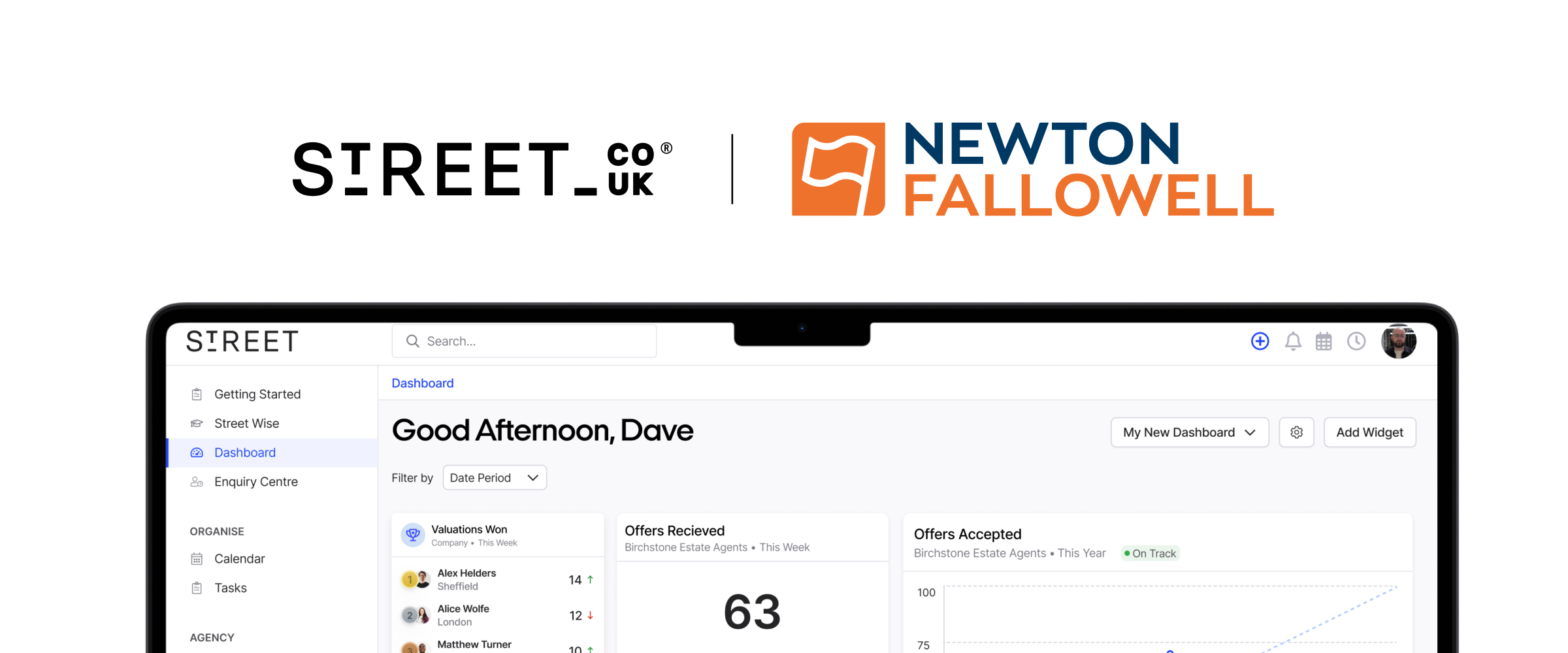
.png)
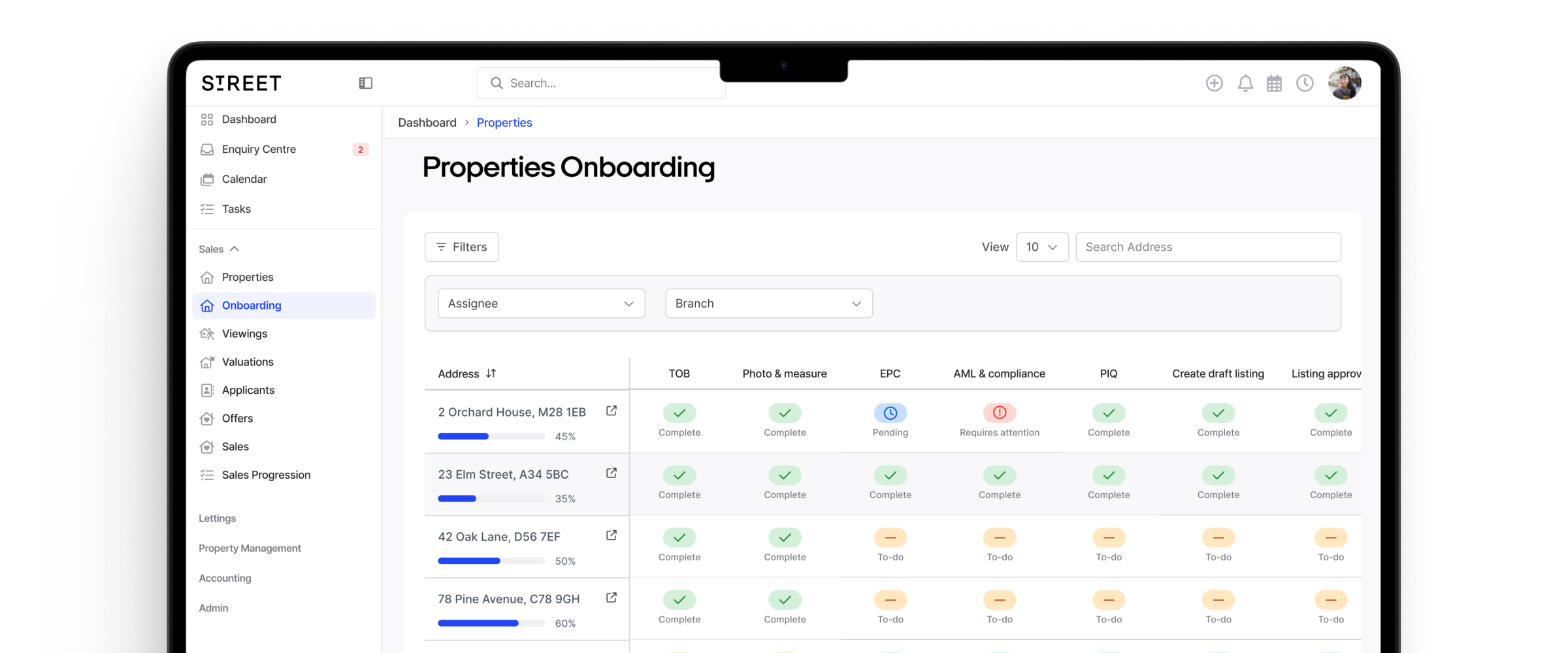





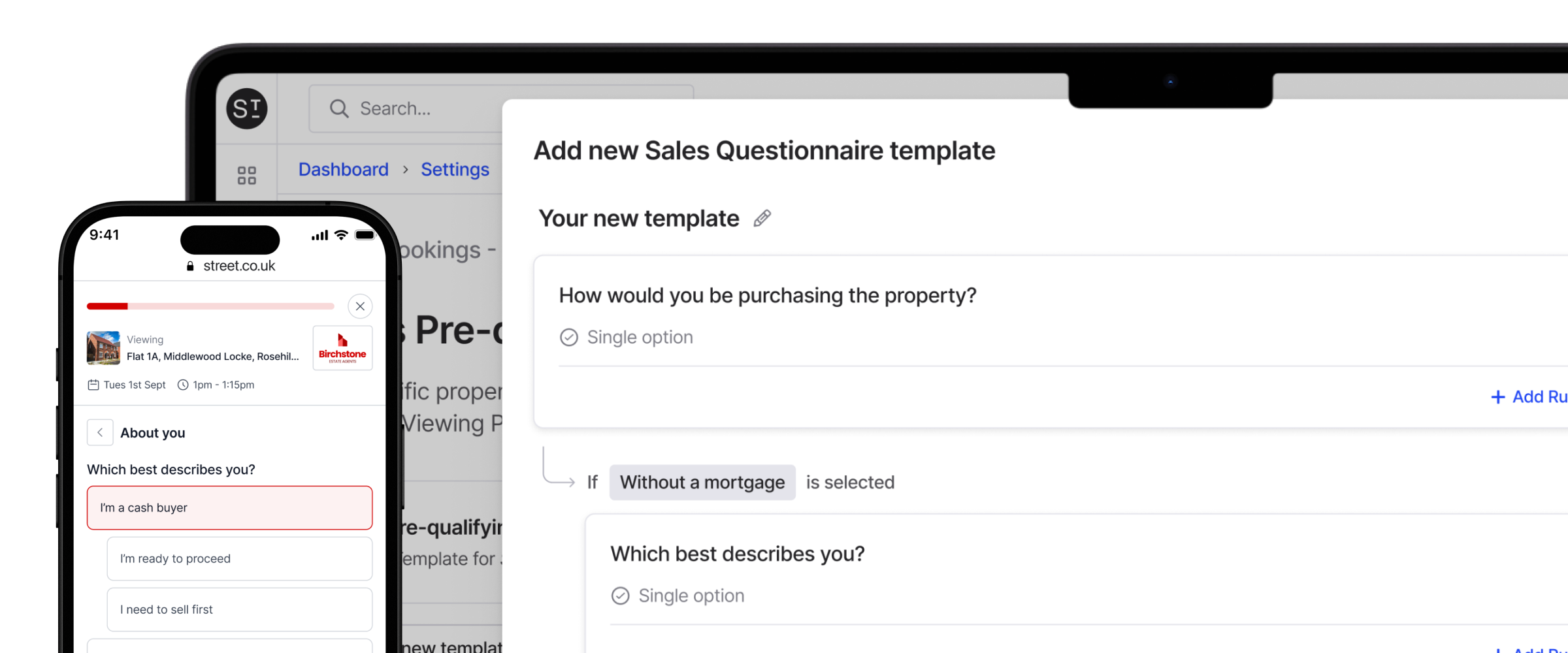

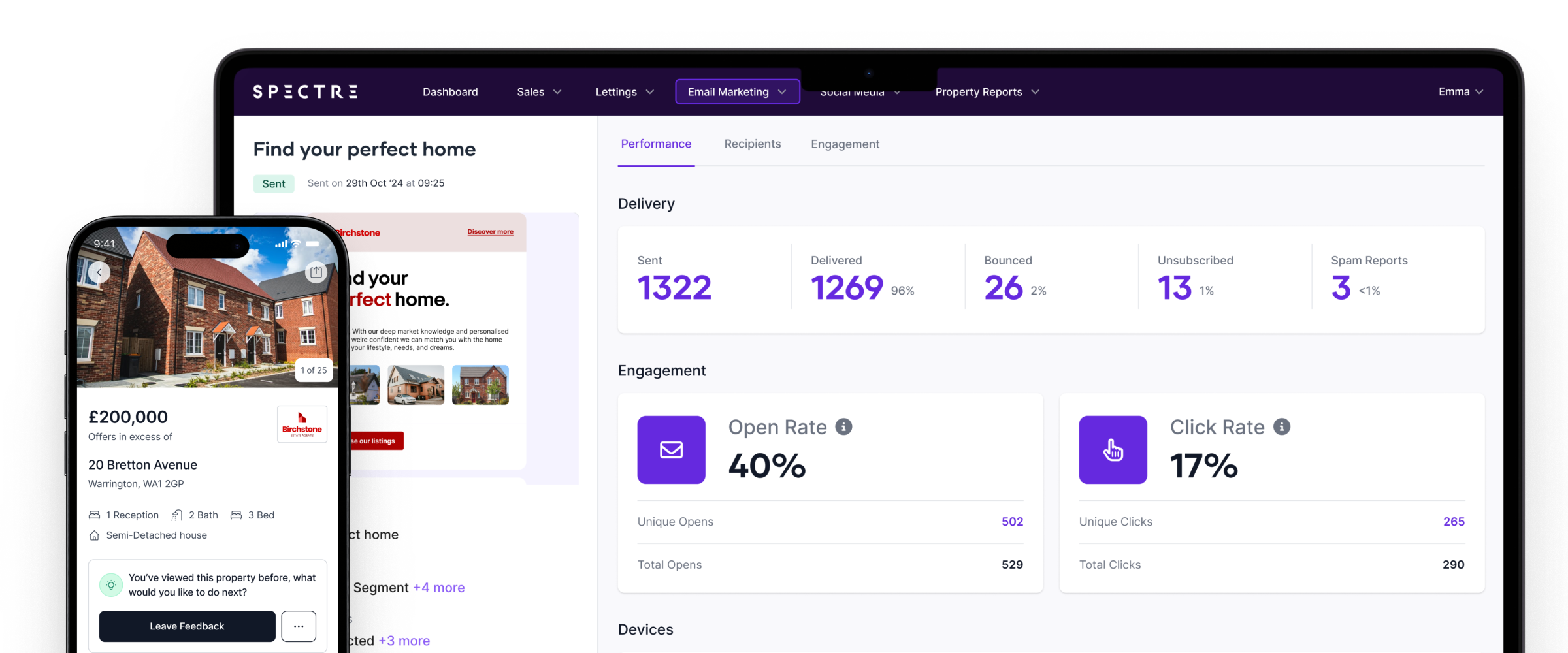
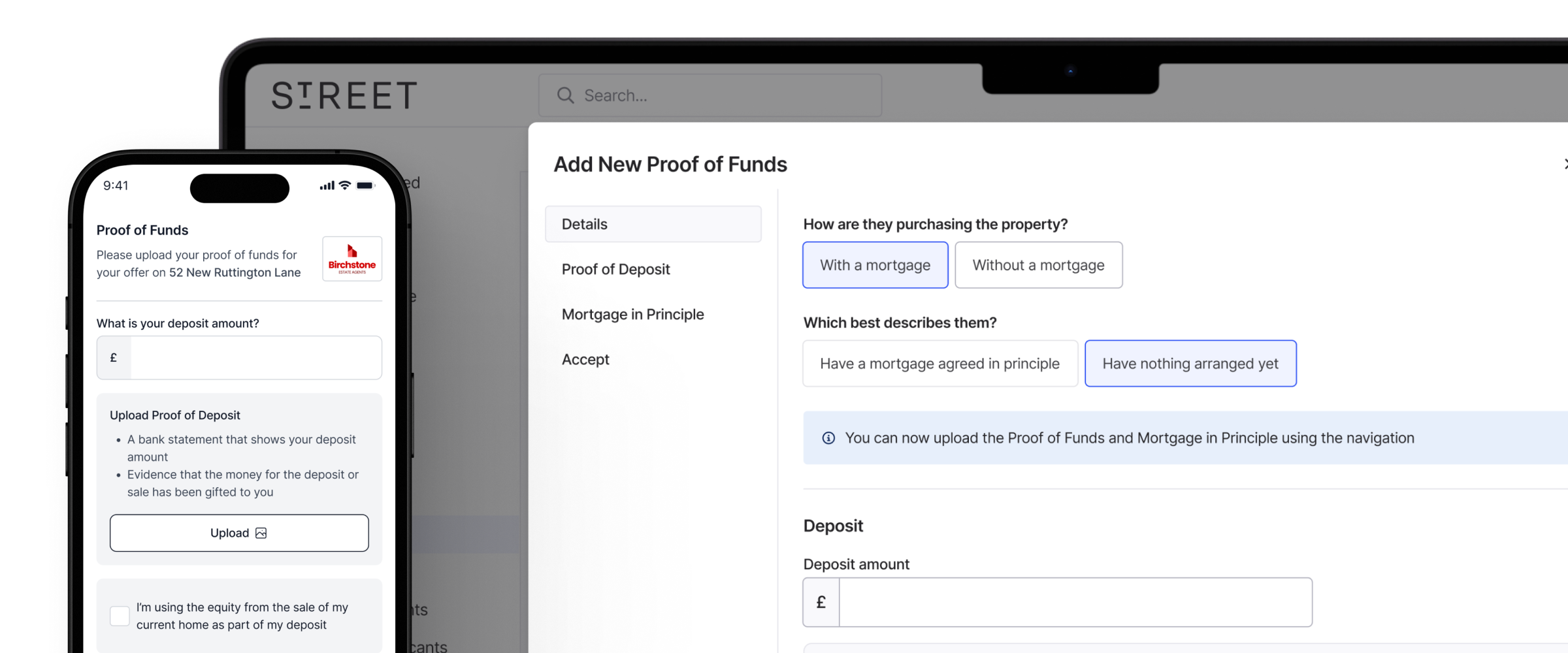





.png)
.jpg)







.jpg)
.png)
.png)
.png)
.jpg)



%20(1).png)
.jpeg)




.png)




.jpeg)



.jpeg)

.jpg)


.jpg)














.png)






.jpg)












